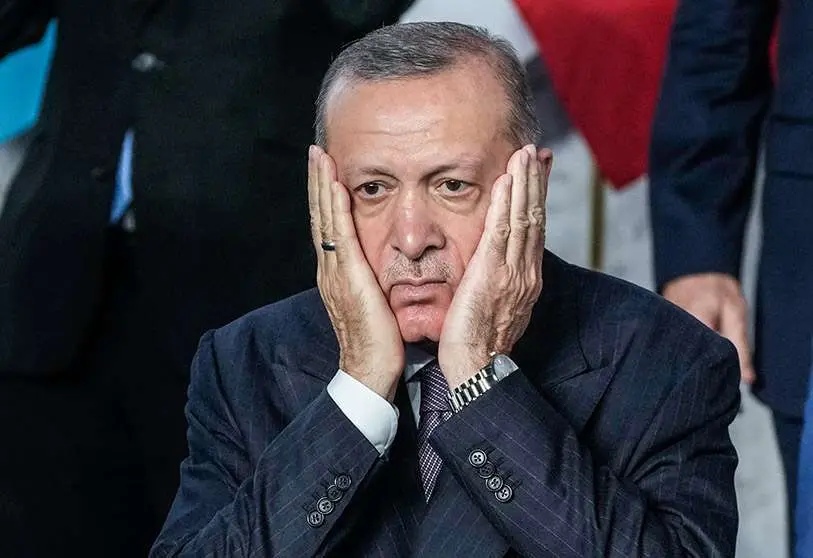Erdoğan's dream

The term 'geopolitics' is often used as a synonym for 'international politics', sometimes falling into such nonsense as the 'geopolitics of vaccines' or the 'geopolitics of 5G', since both pandemics and telecommunications make geographical boundaries irrelevant. In its original sense, the concept of 'geopolitics' was coined in the 19th century by the Swedish political scientist Rudolf Kjellen, who had an organicist view of the nature of the state, strongly influenced by Darwin's then still-fresh theories.
However, the most relevant meaning of 'geopolitics' today is that which defines it as the study of the influence of geographical space on states and their politics. On this basis, it is possible to analyse certain international dynamics through the lens of geoeconomics and geostrategy, understood respectively as the efficient use of soft power and the effective use of hard power. This duo is complemented by the study of geo-culture, which, while encompassing a broad spectrum of elements, has as its central objective - to borrow the expression of the Austro-Marxist Otto Bauer - the external projection of a nation-state united by a community of destiny into a community of character.
From this perspective, there are very few countries that truly incorporate the three conditions in their international policy, one of them being Turkey, whose circumstance we will deal with on this occasion because the Spanish banking sector is by far the most exposed of all international lenders to Turkey's economic vicissitudes, which makes the risks incurred by Turkish geopolitics a matter of national interest for Spain.
As a direct consequence of Britain's fickleness, which unilaterally postulated itself as the champion of Turkish EU membership before using Turkey as a scarecrow during the Brexit campaign in the wake of the refugee crisis, Ankara has turned its foreign policy on its head. In an eastward shift, Turkey has launched a geopolitical alla lettera, combining military interventions in the area of the former Ottoman Empire with strategic initiatives such as the 7,500 km Trans-Caspian corridor, which has reduced the trade route from the north-eastern port of Lianyungong to the very gateway to Europe by almost 2,000 km, crossing Kazakhstan, the Caspian Sea, Azerbaijan and Georgia by land and sea.
In addition, this corridor is complemented by the Eurasian Tunnel, the Marmaray underwater train, and the canal linking the Sea of Marmara to the Black Sea. However, all these projects are only viable with Beijing's commercial and financial commitment, especially given Turkey's vulnerability to the possibly choreographed hostility to which it is being subjected by international financial markets, in addition to US and EU economic sanctions, and the halving of foreign direct investment in Turkey so far this year.
This dependence on China has led Recep Tayyip Erdoğan to modulate his stance towards the Uyghur minority, which until recently had benefited from a policy of asylum and political support for groups linked to the World Uyghur Congress such as the East Turkestan Islamic Movement, whose terrorist activities in Syria and links to Uyghur separatist activism in China are both on record.
Erdoğan's gamble is to become an indispensable geostrategic actor, capitalising on his geo-cultural influence in Eurasian countries such as Azerbaijan and Uzbekistan, key pieces in the jigsaw puzzle of countries traversed by the International North-South Transport Corridor launched in 2002 to create a trade route between Russia and India, which has the potential to create remarkable synergies with the rest of the economic corridors at the intersection neighbouring Turkey.
The recent agreement between Iran and China for Tehran's participation in the Shanghai Cooperation Organisation would confirm Ankara's calculations, as this stretch of the new headquarters route through Iran and Iraq to reach the Syrian port of Latakia gives Turkey considerable capacity to influence geo-economically the affairs of former Ottoman Empire countries such as Jordan and Egypt, for which this route offers a formidable opportunity to prosper.
According to the Roman rhetoric professor Aelianus, Plato argued that hopes are the dreams of men when they are awake. From what has emerged from Recep Tayyip Erdoğan's meetings with his counterparts during the G20 in Rome, the Turkish president seems to have woken up to the reality that Turkey's geostrategic position allows him to dispense with his previous penchant for zero-sum games, and reinvent himself as a decisive leader to bring about the materialisation of new economic systems with the scope and potential to subvert the dynamics of underdevelopment in the territories that were once part of the Ottoman Empire that is always in his dreams, and of which Erdoğan may end up as uncrowned king. This is certainly not the worst-case scenario for Spanish financial interests in Turkey.

